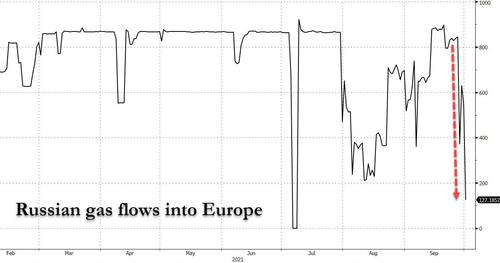https://www.newswise.com/articles/hydropower-and-wind-may-replace-oil-and-gas-in-russia
Hydropower and wind may replace oil and gas in Russia
Newswise — Russia has great potential for using renewable resources because they are almost evenly distributed throughout the country, scientists say. The size of the territory, combined with different climatic conditions and terrain, gives Russia the opportunity to develop many renewable energy sources (RES), but their implementation is not accelerating. These and other conclusions researchers published in Energy Reports.
"Reducing greenhouse gas emissions and developing renewable energy is one of the top priorities of modern countries. My co-authors were representatives of different countries and fields of activity in order to make the article as objective and complete as possible. It took us about a year to study the available theoretical materials and conduct interviews with experts in the field of RES. This allowed us to draw the most complete picture of the state of renewable energy in Russia and give some recommendations for the development of this industry," says Ephraim Bonah Agyekum, a research engineer at the Department of Nuclear Plants and Renewable Energy Sources at the Ural Federal University, the co-author of the article.
The most promising RES in Russia are wind and hydropower, scientists believe. The amount of electricity produced from these sources will be enough not only to cover local needs but also to export to European countries. Suitable areas for the installation of wind farms are territories of the Northwestern, Southern, Siberian, Ural, and Far Eastern Federal Districts. A large amount of unoccupied land is a positive factor for the installation of new power plants.
Despite the high potential and growing interest in the renewable energy sector, their introduction in Russia has been slow. The main reason, according to researchers, is the sufficiency of fossil fuels and nuclear energy. Russia is not forcing the transition to renewable energy, and therefore the regulatory framework for the implementation of implementation programs is lagging behind.
"The renewable energy sector is very capital-intensive and largely depends on legislation. The existing documents in the field of renewable energy in Russia are not enough for its progressive development, - emphasizes the researcher. - There is an objective need to revise the mechanism of RES development in the domestic and global markets, to make it more attractive for investors and countries exporting green energy.
Legislative changes are just one of the factors of alternative energy sector development. Research and development of Russian universities can play an important role in the development. Experts believe that the use of foreign designs for power generation in harsh Russian climatic conditions may be ineffective. The development of more efficient technologies requires scientists not only to have knowledge but also to take into account local weather conditions.
"The country's existing projects to reduce greenhouse gas emissions are now very relevant. Despite the comprehensive nature of the study, further research into the sector and the opportunities and challenges of its development is needed. The article provides valuable insights that can influence the direction of policy in Russia, but we plan to work on this topic further," says Ephraim Bonah Agyekum.
Note
Representatives from universities in Russia, China, India, Pakistan, Ireland, Cyprus, and Oman worked on the study. Based on a review of existing literature and 30 interviews with experts from academia and industry, the researchers compiled a comprehensive analysis of the renewable energy sector. They described political, legal, economic, social, and technological aspects, defined the key directions of development, the main problems, and gave a number of recommendations for the development of alternative energy sources in Russia.
Renewable sources of energy are energy flows constantly existing or appearing periodically in the environment. The main types of renewable energy include solar radiation, hydropower, wind, biomass, sea and ocean currents, tidal energy, and the thermal energy of the Earth's interior (geothermal energy). The potential reserves of alternative sources far exceed the potential of non-renewable sources (oil, gas, coal, etc.) and can cover all the future needs of mankind in electricity.
See Original Study: https://www.sciencedirect.com/science/article/pii/S2352484721005035?via%3Dihub




 Arrow
Arrow
